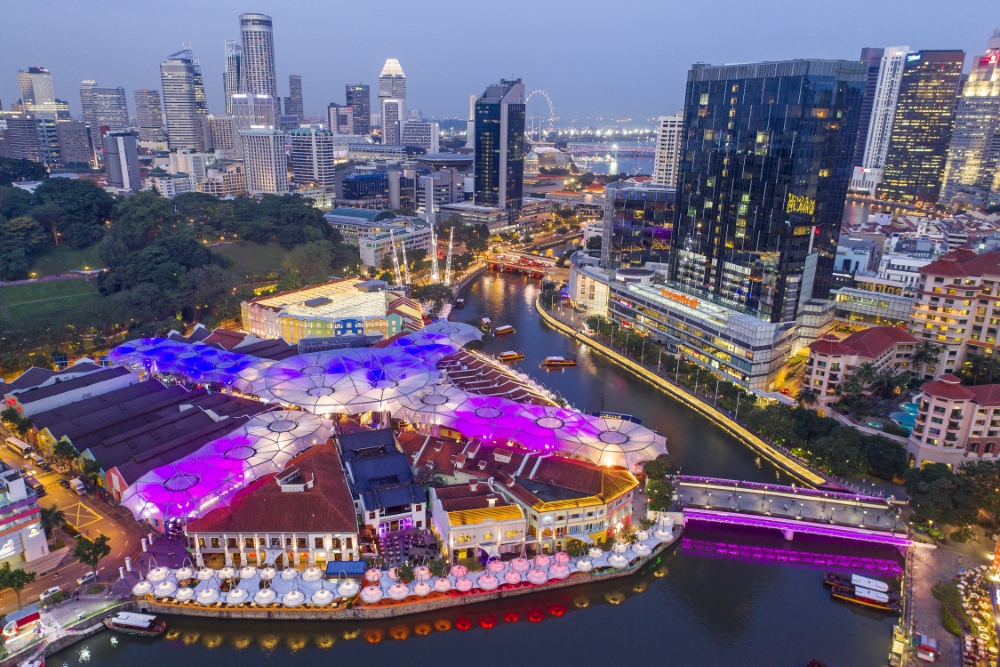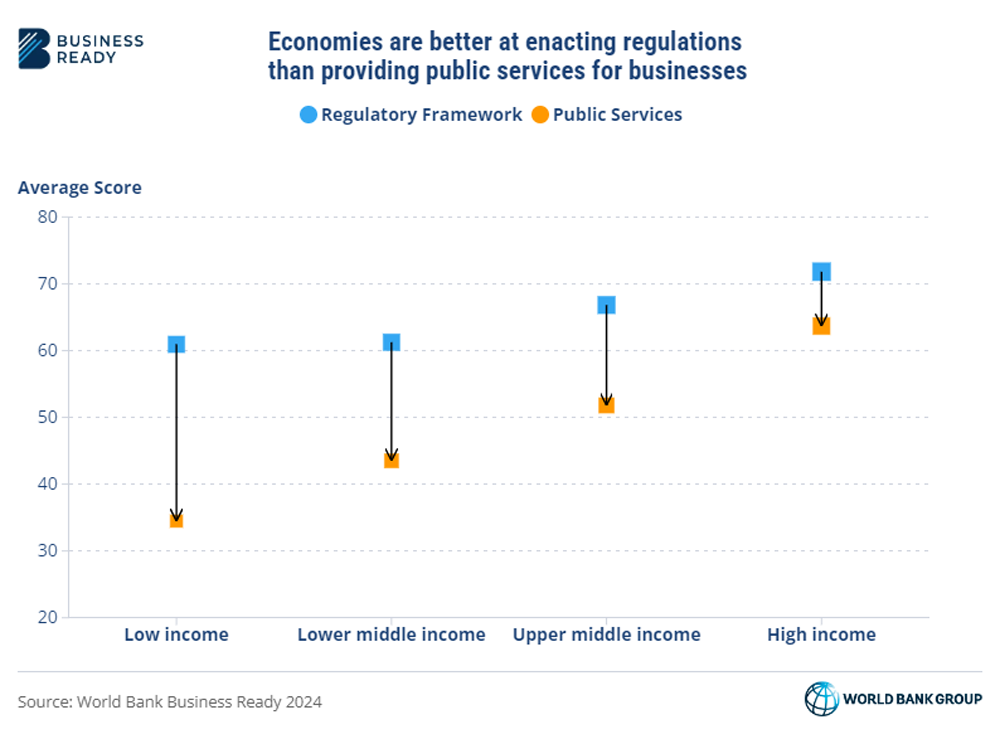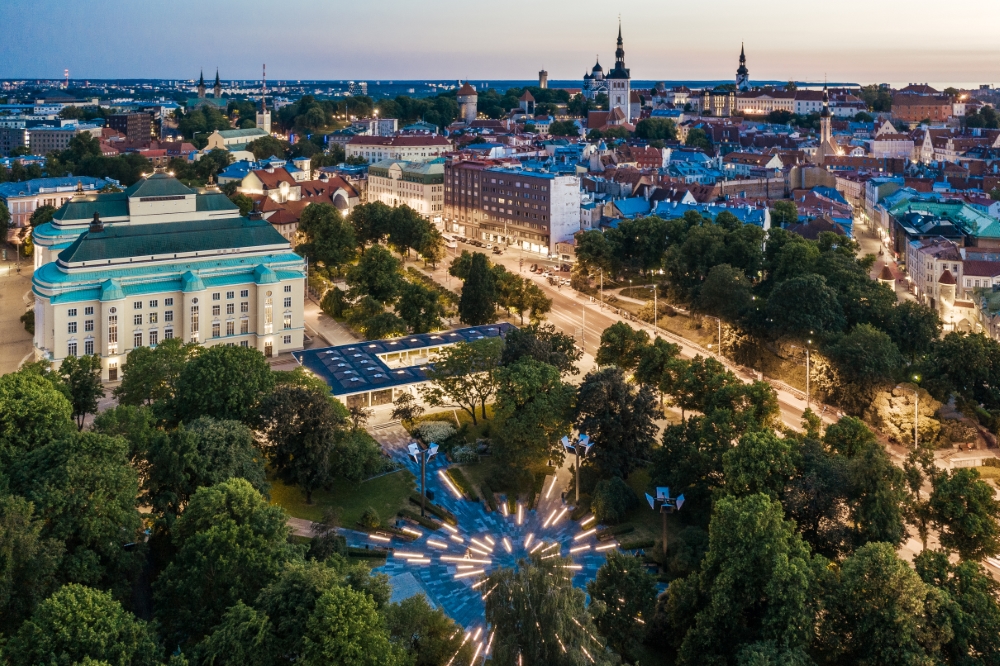

Singapore tops more than one ranking of business environments, including the new Business Ready rankings from the World Bank.
Photo of Clarke Quay courtesy of Singapore Tourism Board
Time was when the World Bank Doing Business rankings were a standby resource, whether we were examining the rise of India or putting together a composite index for Site Selection’s annual Global Best to Invest honors.
The idea was simple: Grade countries across a number of metrics related to the relative ease of doing business in them. But then, faced with data irregularities and potential ethics breaches that eroded trust in the organization’s data and methodology, the World Bank Group announced in September 2021 that it was discontinuing the Doing Business report.
“Going forward,” the organization stated, “we will be working on a new approach to assessing the business and investment climate.”
In October, that new approach took tangible form in the new “Business Ready” report, which in the interest of full transparency offers the option to download the full data behind it. How much data? Around 1,200 indicators per economy. The World Bank even goes so far as to offer a reproducibility package that allows anyone with sufficient curiosity to reproduce the results reached in the “B-READY” report from raw data sets. You can even still access all the historical results of the Doing Business report series across 17 years.

Co-authored by Norman Loayza, director of development economics in the World Bank’s Global Indicators Group, and Business Ready Manager Valeria Perotti in that same group, the “B-READY” rankings address three pillars — regulatory framework, public services and operational efficiency — via 10 topics:
- Business Entry
- Business Location
- Utility Services
- Labor
- Financial Services
- International Trade
- Taxation
- Dispute Resolution
- Market Competition
- Business Insolvency
However, the first iteration only covers 50 seemingly random countries and offers no composite score or ranking across all metrics.
I asked Loayza why.
“We are in the 3-year rollout phase of the project,” he wrote back. “B-READY 2024 includes only 50 economies, but our goal is to cover 180 economies by 2026. On our website, you can see which countries will be added to the list in 2025 and 2026. In choosing the initial 50 economies, we used two criteria: 1) the ease of conducting an Enterprise Survey in the country based on past experience (which is why the initial set generally involves smaller economies); and 2) the need for a representative sample of countries from all regions of the world and all income levels.”
As for my persistent American need for a final score with a winner, he replied, “The immediate goal of ‘Business Ready 2024’ is to enable countries to identify exactly where they have the greatest room to improve their business environment: Disaggregated scores on topics and pillars are good for this purpose. In this sense and other ways, it is different from its predecessor, ‘Doing Business.’ B-READY aims to drive business-climate reforms that benefit not only businesses but also workers, consumers and the national economy as a whole. It is designed to avoid rankings that encourage unhealthy competition, for instance the ‘race to the bottom’ involving deregulation that lowers the cost of doing business for some while raising the costs for society at large.”
Crass as it may seem after that explanation, nothing stopped me and our director of programming and analytics Daniel Boyer from aggregating nonetheless. Averaging out the scores across the three pillars results in these Top 10 by average score:
- Singapore
- Estonia
- Georgia
- Rwanda
- Hungary
- Portugal
- Slovak Republic
- Bulgaria
- Hong Kong SAR, China
- New Zealand
“On a scale of 0 to 100, economies score an average of 65.5 for the quality of their regulatory framework — meaning, on average, economies are nearly two-thirds of the way to being business-ready in this category,” the World Bank said in a press release. “But they score just 49.7 for their public services, indicating they are only half as ready as they ought to be. This gap exists across all income levels and all regions, although it’s smallest in high-income economies and greatest in Sub-Saharan Africa and the Middle East and Northern Africa.”
Hop around the spreadsheets and you can see how countries perform across each pillar and each topic. For example, under the business location rubric — which encompasses more than 130 sub-metrics from property transfer standards and land dispute mechanisms to environmental permitting and leasehold restrictions for foreign firms — the top score goes to the country of Georgia, where FDI in 2022 reached an all-time high of $2.3 billion. Here are the top 10 in the business location category:
- Georgia
- Estonia
- New Zealand
- Singapore
- Morocco
- Croatia
- Hungary
- Costa Rica
- Colombia
- Rwanda
Prefer to use the prism of taxation? Here, the sub-metrics range from clarity and transparency to VAT refunds, digital services for taxpayers and audit and dispute procedures. Sort by overall score and you get the following top 10:
- New Zealand
- Estonia
- Hong Kong SAR, China
- Singapore
- Mauritius
- Georgia
- Rwanda
- Mexico
- Tanzania
- Lesotho
Being limited to only 50 countries, comparing B-READY to other global indices of business environment comes with an asterisk. That said, The Economist Intelligence Unit within days of the World Bank’s October report release published its own business environment rankings of 82 countries and territories (up from 59 when the report was first released in 1995). Singapore, Denmark and the United States top the list, reinforcing the Asian city-state’s dominance. The EIU also rated the countries by most improved, revealing the following top 10 led by Vietnam, which comes in at No,. 17 overall in our averaging exercise from the B-READY scores.
- Vietnam
- Serbia
- Romania
- Morocco
- Saudi Arabia
- Turkey
- Poland
- Israel
- Croatia
- Peru
Others that happen to overlap include No. 9 Croatia, which slots in at No. 11 in B-READY’s group of 50 countries; No. 4 Morocco (No. 22 in B-READY) and No. 10 Peru (No. 23 in B-READY).
Another aspect of B-READY worth noting: The report encompasses actual conditions, not theoretical ones. Across the 50 countries, “it takes anywhere from three days to 80 days for a domestic firm to be registered — and up to 106 days for a foreign firm,” the World Bank states. “Firms face an average of four electrical outages per month, although the number can be as high as 22. On average, it takes slightly more than two years for a business dispute to be resolved in court, although the duration can be as long as 5 years or as little as 105 days.”
In sum, the new B-READY data sets offer a valuable starting-line tool for winnowing a list of global locations, including the option to grab the data and weight it however you wish.
“With economic growth being slowed by demography, debt and discord, progress will come only through the ingenuity of private enterprise,” said World Bank Group’s Chief Economist and Senior Vice President for Development Economics Indermit Gill. “That depends on conducive conditions — an investment climate that facilitates the economic miracles that entrepreneurs make when they are given half a chance, miracles that are badly needed today. Business Ready gives governments the intelligence they need to create conditions that allow businesses to build prosperity for their shareholders, consumers and workers while treading lightly on the planet.”

Estonia (whose capital Tallinn is pictured here) performs well across a number of B-READY pillars and metrics.
Photo of Tammsaare Park by Kaupo Kalda courtesy of Tallinn City Tourist Office & Convention Bureau